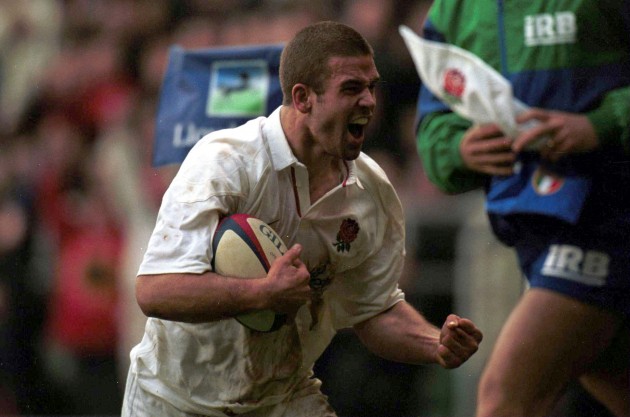The Top 14 is having a breather until the end of October as European competition holds sway, allowing clubs a chance to assess their performances a third of the way through the season. Few will be as content as Bordeaux-Begles. A decade ago the club was in Federale 1, the third tier of French rugby, and now they are third in the Top 14 with six victories from their first nine games, including 50 point thrashings of Castres and Clermont. They’ve racked up more points (274) than any of their rivals and only Toulon have scored more than Bordeaux’s 28 tries. And their defence is pretty handy, too, thanks to the efforts of defence coach Joe Worsley. Gavin Mortimer caught up with the former Wasps and England flanker to find out more about Bordeaux’s blistering start to the campaign.
Rugby World: Are you surprised by Bordeaux’s fine start to the season?
Joe Worsley: I’m surprised that we put 110 points on Clermont and Castres. But we’ve improved a lot in the last 12 months, on the field and also off it with new facilities and so on. But we’re only nine games into the season so there is still lots to do.
RW: Did the coaches set the squad a goal at the start of the season?
JW: We’re not really into goals, but if you look at the club, where it’s come from in the last eight years, then finishing in the top six would be a fantastic achievement.
RW: What is the standout display so far this season?
JW: We were good away at Toulon [Bordeaux lost 18-13], particularly as the majority of the first XV weren’t playing. But probably our best performance was beating Clermont [51-21].
RW: Defence is your job, are you pleased with how it’s gone?
JW: There have been two games, both away from home, where we haven’t played well. We need more consistency but you can’t really talk about attack and defence separately. The two are inter-linked. If your attack is going well that makes defence much easier because the easiest form of defence is when you have the ball.
RW: How’s the coaching chemistry?
JW: Raphael Ibanez is in charge and he always makes the final call. Beneath him are me and two others [Vincent Etcheto and Regis Sonnes]. We get on well. We are all young and enthusiastic, and interested in people. It’s an enjoyable work environment.
RW: Bordeaux hooker Clément Maynadier said recently there’s an ‘Anglo-Saxon style’ to training. True?
JW: In the UK and Ireland we’re more used to intense training, as realistic as possible but minus the contact. Raphael and I have a lot of experience of that, and the other coaches at Bordeaux are of the same mindset.
RW: Ibanez could be the next coach of France. If he asked, would you go with him?
JW: I don’t know, I would have to give it a lot of thought as a proud Englishman. Being an international coach is completely different to being a club coach. I like the everyday working with people, helping them develop on a daily basis. The France team has a problem in how much time they spend together and the players get flogged so much because there’s not the same agreement that there is between union and clubs.
RW: How does Bordeaux’s player recruitment policy work?
JW: It’s full on from now until February with so many games to be watched with players we’re interested in. The president is key because he has vision and takes on board our opinions. He’s actually hired someone – a scout, for want of a better word – to oversee everything. But assembling the right squad is obviously a massive task for any club.
RW: Are you disappointed that Bordeaux narrowly missed out on qualification last season for the inaugural Rugby Champions Cup?
JW: It wouldn’t have been good for us [to qualify]. To play in the competition requires a really big squad because the Top 14 is so contact heavy. There is no way we could have done Europe justice and we would have just ended up sending out weakened teams which would have done our reputation no good.
RW: So how much of a priority is the Challenge Cup?
JW: Don’t get me wrong, European competition is extremely valuable and the Challenge Cup is a tough tournament, especially in the knockout stages. There are a lot of quality players in the competition and it gives us the opportunity to play some of our younger players who are champing at the bit.
RW: What are your personal goals?
JW: As a player I set myself goals because you’re concerned with the here and now. As a coach I soon realised it’s more about long-term planning and so I don’t have any specific goals. I’m continually trying to make myself better through research and education.







